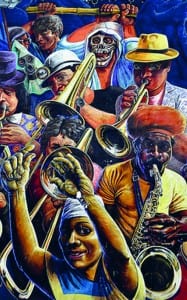Buddhas of Suburbia: faith, migration and suburban change in London
By zclfg58, on 11 March 2014
If there’s one thing to take home from American film culture, from The Virgin Suicides to American Beauty, it’s that the suburbs are a place to be avoided at all costs. Replete with murderous instincts and repressed sexual desires, they are to be treated with scorn by urbanites and the few suburban refugees who manage to escape.
Perhaps this unfair reputation stems from the suburban aesthetic: when the soul is furnished by identikit architecture that presumably houses conservative cultural habits, it is unsurprising that we see the suburban subject as living a boring life, unworthy of academic reflection or investigation.
In her Lunch Hour Lecture, Dr. Claire Dwyer (UCL Geography) rescued suburbia from this prejudicial inertia, demonstrating through an architectural, geographical and cultural comparative analysis of faith loci in Greater London that the suburbs can be a place of dynamic modernity where space is contested, deconstructed and re-mapped.
The first half of Dr. Dwyer’s lecture focused on newly developed or proposed institutions such as the Jain Temple in Potter’s Bar, Hertfordshire and the Salaam Centre in Harrow, which show how the suburbs are on the forefront of cultural innovation. (more…)
 Close
Close





